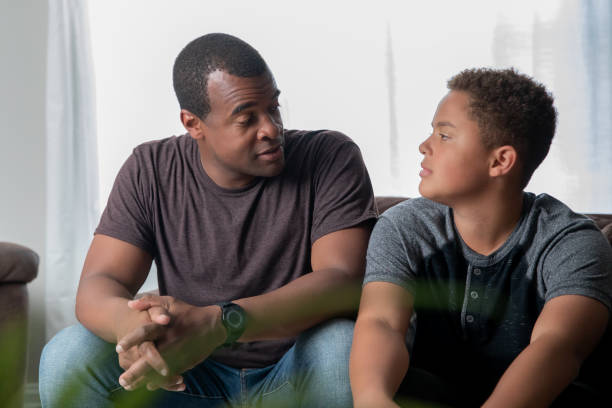(ThyBlackMan.com) In the early 2010s, there was heavy talk around “The Talk”. Following the death of Trayvon Martin in February 2012 and the trial that followed, there was a greater spotlight on violent incidents towards Black people in the U.S.
Of course, cable news tends to have a lot to say each time a Black man or woman is gunned down. It tends to stay in the wheelhouse with mass shootings, violent international conflicts, and the occasional kidnapping or disappearances—that make headline news—each year. You might get a year like 2022 when there was a prison escape just to mix things up in American news.
In Black spaces—whether at home or an online platform—The Talk became a topic and it was interesting to see the early days of this happening. The main reason was seeing that this was another commonality among Black people in America. Yes, The Talk has many forms—because each family is different—that varies by the approach of the parents or guardians, the social and racial climate of the time, and sometimes just location.
The Talk can occur at different ages and it’s always unfortunate because these are kids. They’re expected to enjoy a run of innocence with their parents as teacher and protector but The Talk is part of that protection because the world doesn’t care a child’s innocence and America at different times in history has shown that a Black child’s innocence isn’t particularly important.

How Talk Was Presented to Me
So, the discussion on how to navigate a police stop or just interacting with the police is something most Black households have. Sure, parents tend to talk with their kids about how to address authority respectfully and The Talk was that but the focus was on survival for a younger generation.
When I first heard it, my father explained things to me when I was just entering middle school. Prior to this, we would see the cops patrol apartment complexes and housing projects regularly. The regular cops would hand out the plastic badges and learn the kids’ name—you know, pretty old school patrol/beat stuff. They often didn’t live in the neighborhood but they knew the residents of the area.
However, there was the gap where we only saw the cops at school and rarely chatting it up with the locals. In fifth grade you took D.A.R.E or Drug Abuse Resistance and Education then you took Gang Resistance Education and Training—or G.R.E.A.T. Both programs were promoted and taught by local officers that some of recognized but there was an increased police presence on school grounds as I moved to high school.
But in middle school, I didn’t have a true grasp of what he meant because I wasn’t paying attention to the news in 6th grade. Plus, I was a kid that mainly stayed inside—I didn’t feel it applied to me at the time. Now as an adult, I’m glad he told me since I had a temper and wasn’t above going low or arguing with authority over a slight.
The Talk stuck more when my mother had it with me a few years later in high school. It was the early 2000s, Columbine had determined what was truly school safety—at that time, anyway. Since I was leaving my neighborhood regularly to attend school and was on the MAX bus with others, she felt I needed to know not only how to deal with people in general but police officers specifically. It was an odd talk to have because you grow—again at that time—being taught to call the police if you need help and that they’re there to help.
Now there’s this element of they’re not entirely to be trusted and you have to conduct yourself a certain way not only out of respect but just to live. There’s definitely more fear than respect in the approach. I remember thinking it was odd to be fearful or concerned of someone who you contribute taxes to pay their check but there you are.
That talk occurred in 9th grade since I was going to a magnet school and there was more of a diverse makeup than the school I would graduate from. I understood that she was telling out of concern for my life—something I didn’t have when my dad spoke to me. I didn’t have the understanding that his Talk was out of concern.
How about you? What age were you when your parents gave you The Talk? How do you remember it going down? Also—for our parents reading—have you had The Talk yet? Let us know down below!
Staff Writer; M. Swift
This talented writer is also a podcast host, and comic book fan who loves all things old school. One may also find him on Twitter at; metalswift.

















Leave a Reply